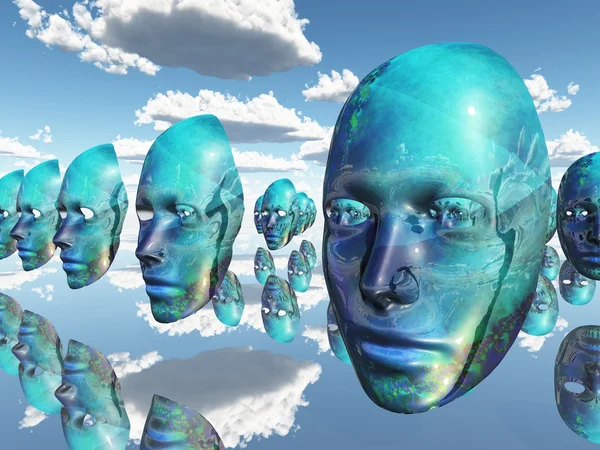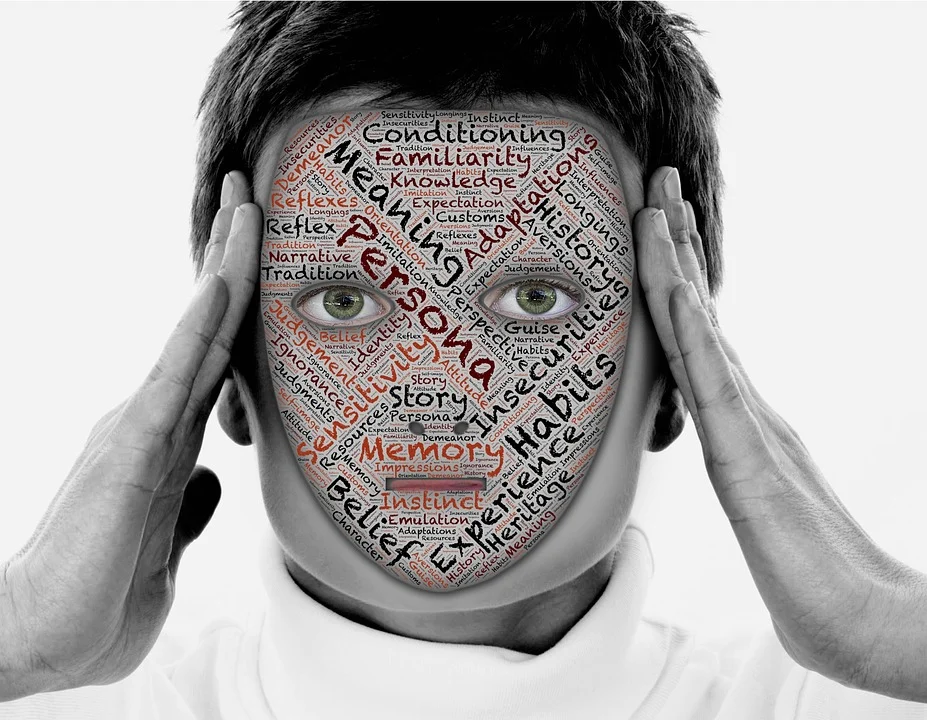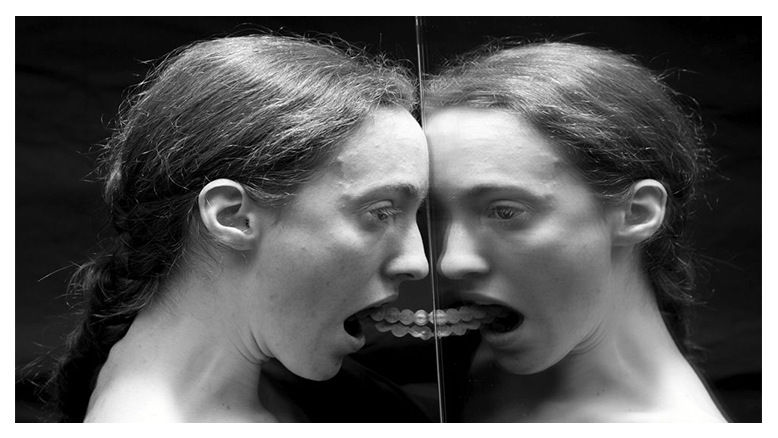Mirroring is a fascinating psychological phenomenon where individuals unconsciously imitate the gestures, speech patterns, or attitudes of those around them. From casual conversations to mass behaviour on social media, mirroring shows up everywhere. But what drives people to mirror others so deeply that they blur their identity?
Most people are other people. Their thoughts are someone else’s opinion, their lives a mimicry, their passion a quotation.
Oscar Wilde.
What Is Mirroring?
At its core, mirroring is a human tool for connection. It builds rapport and fosters comfort within social groups. Anthropologically speaking, people have mirrored one another to belong. We mirror our parents’ religious beliefs, our community’s values, or our country’s politics—because humans are status-driven, tribal beings. In short, we copy to connect.
This behaviour extends beyond familial or cultural frameworks. From the admiration of influential figures to mimicking celebrities, mirroring has expanded into every facet of identity formation today. Many brands capitalise on this: advertising campaigns feature high-status celebrities to evoke trust and loyalty, leveraging the psychological power of social currency.
However, there’s a thin line between admiring and imitating. Mirroring a gesture is one thing; copying someone’s personality is another, and sometimes it raises red flags about multi-personality tendencies or even deeper psychological challenges.
Why Mirroring Intensifies With Social Media
In our digital age, social media acts as a magnifier. It has accelerated the spread of parrot personalities who imitate influencers not just in fashion or speech, but in identity itself. But is this always harmless?
Today’s copycats often lack a personal identity. They are digital chameleons, consumed by a desire to become the influencer, to feel like them, to own what they own. These identity mimicries are driven by a toxic loop of contagious marketing and social media validation.
Influencers, ironically, mirror each other too, creating a feedback loop of filtered personalities. They lose sight of what makes them unique. The more people pretend to be someone else, the more elusive their self-worth becomes.
Influencer Culture and the Illusion of Originality
Social media encourages a kind of high-speed identity borrowing. Most followers mirror influencers’ personalities without ever questioning whether those traits align with their true selves. It’s the age of aesthetic ideologies, where curated personas gain likes, and originality is rare.
Fashion is one of the major industries driven by this mirroring effect. Influencers on global fashion trends play a huge role in shaping what people wear, how they present themselves, and even what values they project.
This mimicry even influences people’s stances on geopolitics, democracy, ethnic diversity, gender roles, or social justice, leading to selective idealism. Many self-proclaimed liberals online push inclusivity, yet unconsciously mirror behaviours that reinforce exclusivity. When status-driven culture overpowers introspection, authenticity becomes diluted. The ripple effect of influencers’ opinions can sometimes significantly distort public perception.
Trends, Identity, and Pretend Personas
Back in the 1980s, rebellion was cool. People protested with a purpose. In the 2000s, bullies transformed into spiritual mentors or healers overnight—a pattern now common online. Suddenly, being a “social misfit” is fashionable. But what happens when the misfit persona is just another mask?
People who keep changing their social identity with every social trend may not be evolving. They might be pretending to change based on what’s trending. When identity is shaped only by trends, it’s no longer about growth—it’s about performance.
This performative transformation, especially when motivated by insecurity, erodes true personality. Are we changing for betterment or simply to belong? Where do we draw the line?

Mirroring vs. True Personality
Trends like #nofilter aim to promote authenticity. But isn’t personality more important than some photo editing on social media? You can post your bare face, but what about your filtered personality? What about those who rebel against image filters yet mould their identity to mimic another?
Mirroring in this context becomes a camouflage. And in many ways, it’s more deceptive than any visual enhancement. This distinction highlights the complex interplay between personal identity, perceived self-worth, and the curated online self.
Mirroring in Performance & Professions
The Chameleon Effect explains how some individuals adapt their persona to fit in different social contexts. It’s a useful skill in professions like acting, sales, or politics. But when the chameleon mindset bleeds into everyday life, it creates identity confusion.
People who constantly change their public image may lose sight of their inner selves. When no one is around to mirror, they’re often unsure who they are. This is especially relevant in the creative industry, where individuals often feel pressure to reinvent themselves constantly to stay relevant.
Education, Culture & Mirroring
According to studies, mirroring is influenced by culture, gender, and education. Less educated individuals may be more prone to copying behaviours in social settings. Women tend to mirror emotions; men, gestures. Then, as a statement in the Journal of Individual Differences by Kurzius—Extroverts mirror more than introverts due to their stronger desire to be liked.
Mirroring is a social instinct. But when it slips into pretending, or when people use others as templates to erase their own complexity, it can be destructive. Especially when compounded by toxic positivity and the pressure to always perform happiness.
The Psychological Angle: Copycat Syndrome
Psychologists link excessive mirroring to emotional underdevelopment, trauma, or low self-esteem. Such individuals often carry hollow feelings of inadequacy. For some, mirroring is a cry for recognition or an attempt to escape unresolved pain.
In the creative industry, when people suppress their originality to imitate others, they can become disconnected from their true creative selves. This can lead to internal conflict or emotional fatigue, altering creativity with mental illness.
Social media platforms create a stage for these vulnerable people. The desire to be seen—even if only as a replica of someone else—can spiral into harmful extremes. In some cases, this can manifest as stalking or obsessive behaviours.
Science hasn’t yet defined the full psychological profile of a “copycat personality.” But what we do know is this: many people mirror others not out of admiration, but out of an aching need to feel enough.

Insecurity Wears Many Masks
Mirroring isn’t inherently negative. It can foster empathy, connection, and social understanding. We all learn by observing others. It’s how children develop, how apprentices train, and how artists begin. But when mirroring becomes chronic imitation, it signals deeper fractures in identity and esteem.
There’s a difference between reflecting someone’s energy and replacing your own with theirs. People with parrot personalities often feel that their own identity is not good enough. So they mask their insecurities by copying others. This insecurity, rooted in self-rejection, becomes their default mode of expression.
If there is one question worth reflecting on, it’s this: Are we building our identities based on inspiration and self-awareness, or are we just perfecting the art of imitation?In a world full of mirrors, clarity comes from knowing what belongs to your reflection—and what doesn’t. Instead of being obsessed with being seen, being real is the most radical act.

